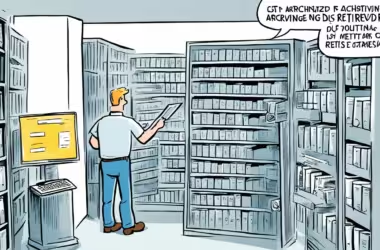The ever-evolving world of technology thrives on the ingenuity of software engineers. But what exactly are software engineer requirements?
This article unveils the key requirements, both technical and personal, that pave the way for a successful software engineering career.
Technical Skills: The Bedrock of Success
Programming Languages
Fluency in at least one programming language is fundamental. Popular choices include Python, Java, JavaScript, C++, and C#. Mastering these languages empowers you to translate ideas into functional code.
Data Structures and Algorithms
Understanding how data is organized and manipulated is essential. Familiarity with algorithms equips you to solve problems efficiently and effectively.
Software Development Methodologies
Agile, Waterfall – grasping these methodologies allows you to approach software development in a structured and collaborative manner.
Version Control Systems
Tools like Git keep track of code changes and enable seamless collaboration with other developers.
Databases
Software applications often interact with databases. Understanding database fundamentals like SQL is valuable.
Beyond the Code: Soft Skills That Matter
Problem-Solving
Software development is an intricate dance of identifying and tackling challenges. Exceptional problem-solving skills are a must-have.
Critical Thinking
Analyzing complex situations, dissecting root causes, and devising creative solutions are crucial aspects of the job.
Communication
The ability to clearly convey technical concepts to both technical and non-technical audiences is paramount. Strong written and verbal communication are essential for successful collaboration.
Teamwork
Software development is rarely a one-person show. Effective teamwork is key to bringing projects to fruition. The ability to collaborate, listen, and work towards shared goals is essential.
Time Management
Meeting deadlines and juggling multiple tasks efficiently are crucial aspects of the job. Strong time management skills ensure projects stay on track.
Lifelong Learning
The tech landscape is constantly evolving. A passion for continuous learning is vital to stay updated with the latest trends and technologies.
Charting Your Course: Choosing Your Path
Software engineering offers a multitude of specializations, each with its own technical focus:
Front-End Developer
Focuses on the user interface and user experience of web applications. (e.g., HTML, CSS, JavaScript)
Back-End Developer
Develops the server-side logic that powers web applications and websites. (e.g., Python, Java, PHP)
Mobile App Developer
Specializes in creating applications for smartphones and tablets. (e.g., programming languages specific to mobile operating systems)
DevOps Engineer
Bridges the gap between development and operations, ensuring a smooth software development lifecycle.
Data Science/Machine Learning Engineer
Combines software development with statistical analysis and machine learning techniques.
Embarking on Your Software Engineering Journey: Resources and Tips
So you’ve familiarized yourself with the key requirements for a software engineering career – the technical prowess and the essential soft skills.
Now, you might be wondering, “Where do I begin?” Here are some resources and tips to kickstart your software engineering journey:
Educational Avenues: Building Your Skillset
- Formal Education: A computer science degree equips you with a strong theoretical foundation in software development principles. However, it’s not the sole path.
- Bootcamps: These intensive programs offer a faster track to learning in-demand programming languages and software development methodologies.
- Online Courses: A plethora of online platforms offer beginner-friendly to advanced courses on various programming languages and software development concepts.
- Self-Learning: The beauty of technology is that learning can happen anywhere. Utilize free online resources, tutorials, and coding challenges to build your skills.
Building a Strong Portfolio: Showcase Your Abilities
- Personal Projects: Develop personal projects that showcase your programming skills and problem-solving abilities. This allows you to experiment, learn new technologies, and build a portfolio that demonstrates your capabilities to potential employers.
- Open-Source Contribution: Contributing to open-source projects allows you to collaborate with experienced developers, learn from their code, and gain valuable real-world experience.
- Hackathons: Participating in hackathons is a fantastic way to test your skills under pressure, work on time-bound projects, and build your network within the tech community.
Sharpening Your Soft Skills: Communication is Key
- Technical Writing: Focus on honing your technical writing skills to communicate complex ideas clearly and concisely in documentation and code comments.
- Presentation Skills: The ability to effectively present your ideas and solutions to both technical and non-technical audiences is crucial.
- Teamwork Activities: Participate in team-based activities or online communities to develop your collaboration and communication skills.
Landing Your First Software Engineering Role: Persistence Pays Off
- Tailored Resume and Cover Letter: Craft a compelling resume and cover letter that highlight your skills and experiences relevant to the specific job you’re applying for.
- LeetCode and HackerRank: Practice coding challenges on platforms like LeetCode and HackerRank to prepare for technical interviews.
- Networking: Attend industry meetups, and conferences, or connect with professionals online to build your network and gain insights into the software development job market.
Remember, becoming a software engineer is a journey, not a destination. Embrace challenges, stay curious, and never stop learning.
With dedication, the right resources, and a commitment to continuous improvement, you can carve your path toward a successful and fulfilling career in the ever-evolving world of software engineering.
Conclusion
While a strong foundation in technical skills is crucial, don’t underestimate the importance of soft skills. A software engineer who can not only code but also effectively communicate, solve problems creatively, and collaborate seamlessly is a valuable asset in any team.
By honing these skills and aligning them with your interests, you can unlock a fulfilling and rewarding career in the exciting world of software engineering.
FAQs
What are the minimum requirements to become a software engineer?
There’s no one-size-fits-all answer, but a strong foundation in programming languages, problem-solving skills, and a passion for learning are essential.
While a computer science degree can be helpful, boot camps, online courses, and self-learning can equip you with the necessary skills for some entry-level roles.
What are the most important technical skills for software engineers?
Proficiency in at least one programming language (e.g., Python, Java, JavaScript) is crucial.
Understanding data structures, algorithms, and software development methodologies (like Agile) is also important. Familiarity with version control systems (like Git) and databases (like SQL) is valuable as well.
Are soft skills important for software engineers?
Absolutely! Software development is a collaborative effort. Effective communication, teamwork, critical thinking, time management, and a willingness to continuously learn are essential soft skills for success in this field.
What are some resources to learn software engineering skills?
There are many options! Consider formal education (computer science degree), boot camps, online courses (beginner-friendly to advanced), or self-learning through online resources, tutorials, and coding challenges.
How can I build a strong portfolio as a software engineer?
Develop personal projects that showcase your skills, contribute to open-source projects to gain real-world experience, and participate in hackathons to test your abilities under pressure and network with others in the tech industry.
What are some tips for landing my first software engineering job?
Craft a compelling resume and cover letter tailored to each specific role you apply for. Practice coding challenges on platforms like LeetCode and HackerRank to prepare for technical interviews.
Network with professionals online or attend industry meetups and conferences to build connections and gain insights into the job market.
Is becoming a software engineer hard?
Software engineering requires dedication and a strong work ethic. The learning curve can be steep, but with perseverance and a passion for technology, it’s a rewarding career path.
What is the job outlook for software engineers?
The job outlook for software engineers is excellent! The Bureau of Labor Statistics projects a 13% growth rate for software developer jobs from 2020 to 2030, much faster than the average for all occupations.






